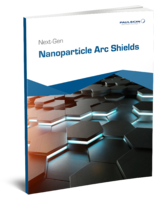Matsushita Establishes Mass-Production System for Safer Lithium-Ion Batteries with High Capacity
Share:
Employing HRL Technology to Improve Safety
Osaka, Japan, Dec. 18, 2006 - Matsushita Electric Industrial Co., Ltd. (MEI; TSE:6752; NYSE:MC), best known for its Panasonic brand, today announced that one of its subsidiaries, Matsushita Battery Industrial Co., Ltd. (MBI) has established a mass-production system for a lithium-ion battery that incorporates the technology to ensure safety. The company began shipping the industry's first 2.9 Ah(1) high capacity batteries in April this year and is now ready to mass-produce the products.
As a power source for mobile and digital equipment essential for a ubiquitous networking society, demand for lithium-ion batteries has grown fast. As such equipment including notebook PCs, mobile phones and digital still cameras become more powerful, sophisticated and feature-laden, they require more robust and safer batteries. Increasing energy-density, however, raises the risk of overheating and igniting due to short-circuiting.
MBI has succeeded in improving the safety by forming a heat resistance layer (HRL) consisting of an insulating metal oxide on the surface of the electrodes. Lithium-ion batteries contain a thin polyolefin(2) separator to insulate the cathode from the anode. When a separator is pierced by an electrically conductive material such as a metal particle, a short-circuit develops, causing the battery to overheat and, in the worst case, catch fire. The HRL used in the Panasonic battery, however, has better insulating and heat-resistant characteristics than polyolefin. Even if a short-circuit occurs, it will cease without causing the battery to overheat.
The HRL technology has enabled MBI to increase energy density and mass-produce safer lithium-ion batteries.
MBI has taken measures to prevent lithium-ion batteries from contaminating with electrically conductive materials by eliminating foreign substances from battery materials and creating a clean environment in the battery factory. Considering contamination with such substances, the company has adopted stronger separators and thermally stable materials. Demand for more safety and capacity, however, called for the development of a new technology. The HRL is a product of MBI's research and development of battery technology and its focus on safety as a first priority.
MBI plans to continue developing lithium-ion batteries with even higher levels of capacity and safety to make contributions to the progress towards the "biquitous networking society."
Matsushita holds 119 patents including pending patent applications with regard to the system.
1. 2.9 Ah: The capacity of 18650 cylindrical lithium-ion battery mainly used for notebook PCs
2. polyolefin: Generic name of plastic such as polyethylene and polypropylene
About Panasonic (Matsushita Electric Industrial)
Best known by its Panasonic brand name, Matsushita Electric Industrial Co., Ltd. is a worldwide leader in the development and manufacture of electronic products for a wide range of consumer, business and industrial needs. Based in Osaka, Japan, the company recorded consolidated net sales of US$76.02 billion for the year ended March 31, 2006. The Company's shares are listed on the Tokyo, Osaka, Nagoya and New York (NYSE:MC) stock exchanges. For more information on the company and the Panasonic brand, visit the Company's website at http://panasonic.net/.
For further information, please visit the Panasonic (Matsushita Electric Industrial) home page at: panasonic.co.jp/global/top.html
Contact
Akira Kadota (Japan)
International PR
Tel: +81-3-3578-1237
Panasonic News Bureau (Japan)
Tel: +81-3-3542-6205
Jim Reilly (U.S.)
Tel: +1-201-392-6067
Munetsugu Takeda (Europe)
Tel: +49-611-235-305




